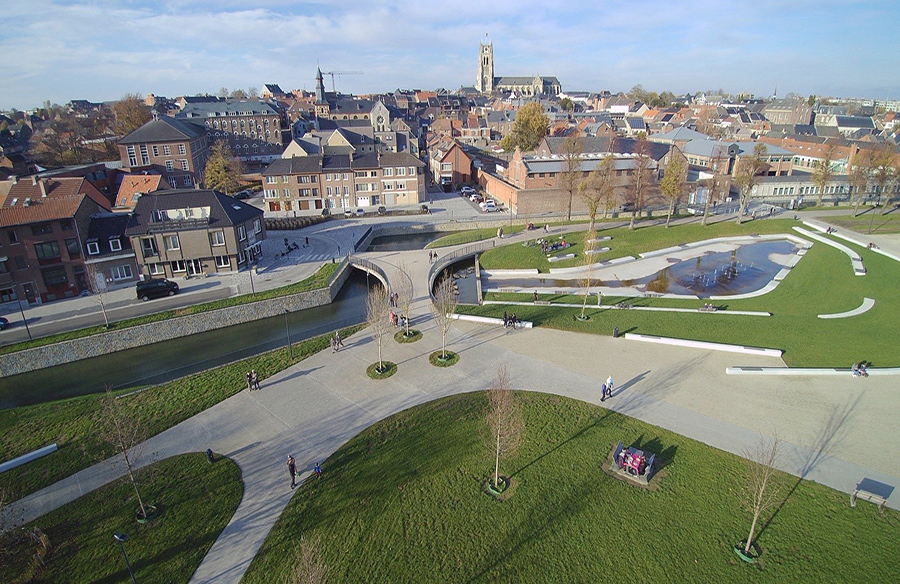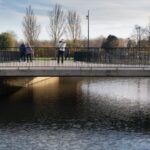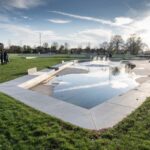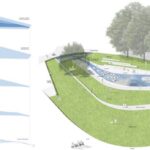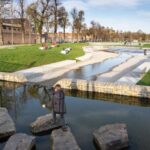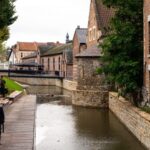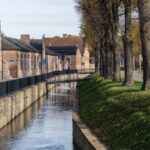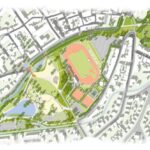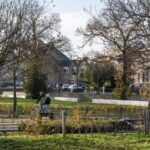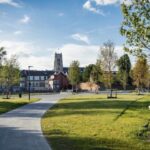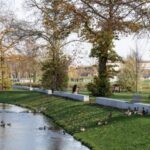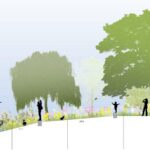Embracing Water for Climate Adaptation
The transformation of ‘De Motten’ into a vibrant city park with the unveiling of an ancient branch of the Jeker River in Tongeren exemplifies the power of water in enhancing climate adaptation and urban quality of life. After more than six decades, the Jeker once again meanders through the heart of Tongeren, the oldest Roman city in Belgium. The project’s vision was to leverage the unveiling of the historic riverbed to create a valley-like oasis within the city, fostering a city park where water becomes an integral part of the urban experience. Today, ‘De Motten’ stands as a rejuvenated gathering space, offering open areas for recreation and relaxation.
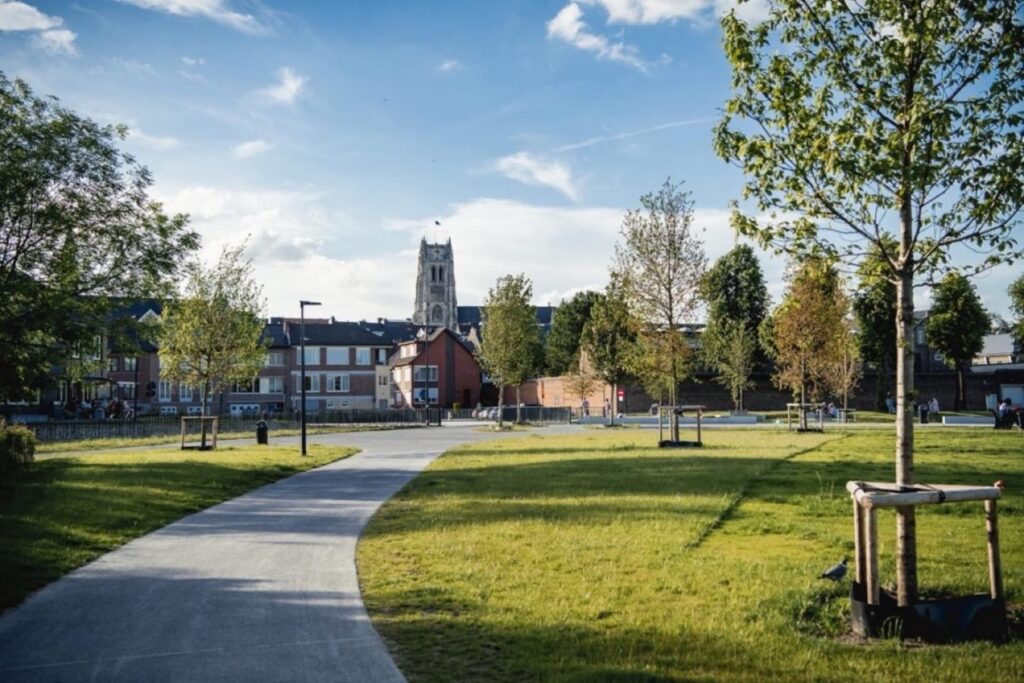
Bridging Past and Present
At the heart of the revitalization effort was the restoration of natural functions alongside experiential design principles. The juxtaposition of the ancient city and its natural surroundings guided the park’s design, with the Jeker River serving as a pivotal link between urban and natural landscapes. As the river winds along the old city walls, it seamlessly integrates the city with the surrounding valley, offering residents and visitors access to the scenic beauty of ‘De Kevie.’ Through the unveiling of the Jeker River and the park’s redesign, efforts were made to reduce hard surfaces, paving the way for a cohesive urban park and an essential connection to the valley.
Transitioning with Purpose
Drawing inspiration from the Roman god ‘Janus,’ symbolizing transitions, the project embraced a holistic approach to urban renewal. By reconnecting with the city’s historical roots and revitalizing neglected spaces, ‘De Motten’ embarked on a journey of transformation. The reconstruction of the riverbed, aligned with ancient Roman and Medieval fortifications, served as the cornerstone of this renewal effort. Additionally, new bridges were constructed to seamlessly integrate the park with surrounding neighborhoods, while existing community gardens were thoughtfully integrated into the fabric of the park, enriching city life.
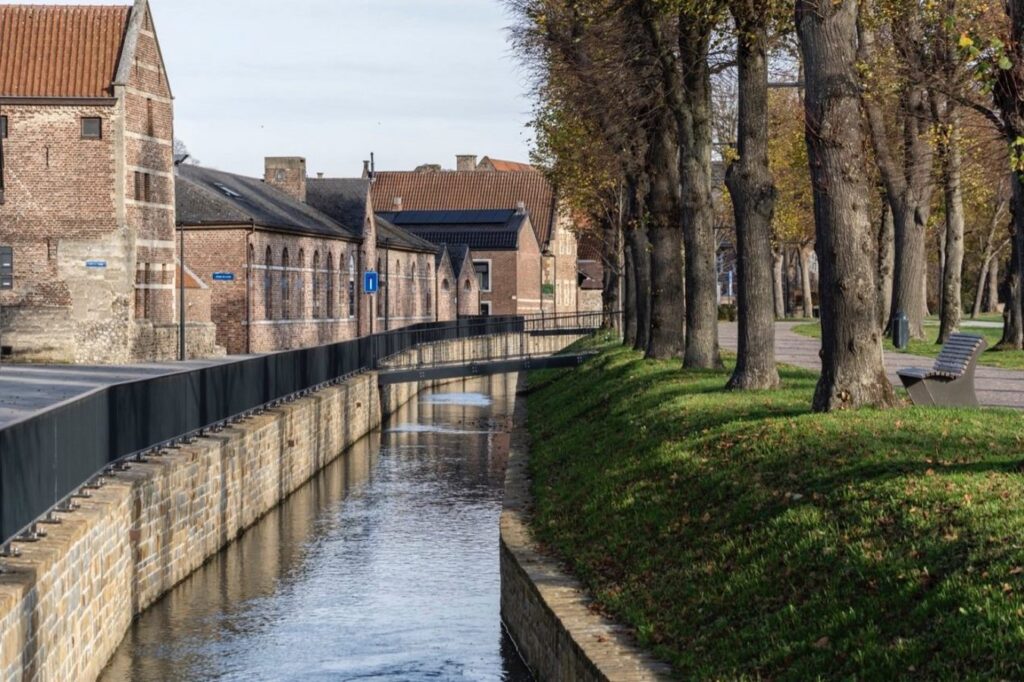
Water-centric Experiences
The Jeker River, much like Tongeren itself, boasts a unique character shaped by its Roman heritage and its reliance on rainfall. To harness its potential, flow control mechanisms were implemented to manage water levels and facilitate fish migration. A focal point of the park, the ‘Water Square,’ nestled against the historic ramparts of ‘Kastanjewal,’ celebrates the vital role of water in urban life. Serving as a dynamic meeting space, the square offers a safe and engaging environment for water-centric activities, transitioning seamlessly from a playful fountain in summer to an ice-skating pond in winter.
Collaborative Design for Community Impact
The successful transformation of ‘De Motten’ and the unveiling of the Jeker River stand as a testament to collaborative design and community engagement. Through a multidisciplinary approach, involving various governmental institutions and stakeholders, the project seamlessly integrated heritage preservation, urban mobility, and climate adaptation strategies. From conception to execution, the project exemplifies the power of design to foster meaningful connections between communities and their urban environments.
A Vision for Sustainable Urban Spaces
Today, ‘De Motten’ stands as a vibrant testament to sustainable urban design, offering a diverse array of leisure activities and cultural experiences for residents and visitors alike. The project’s impact extends beyond the realm of public space, contributing to enhanced mobility, environmental resilience, and community cohesion. Recognized with the prestigious Public Space Prize in 2021, ‘De Motten’ serves as a beacon of innovation and excellence in sustainable urban development, inspiring future endeavors aimed at creating vibrant and resilient cities.


